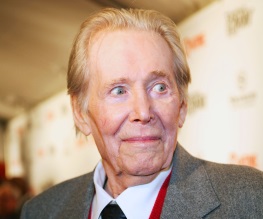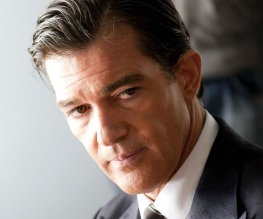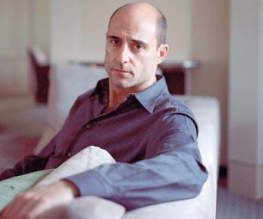Black Gold

Set in the Arabian states during the 1930s, Black Gold tells of warring rulers Nesib (Banderas), a man who craves progress, and his neighbouring sultan, Amar (Strong), a fierce conservative who has already given his sons to Nesib as part of an uneasy peace treaty. When an American oilman arrives with news that great wealth lurks beneath the sand separating their kingdoms, Nesib sees a chance to bring his people into the modern age, promising schools, hospitals and maybe the occasional extravagance for himself. Amar, however, sees the oil as a test from God and something only an infidel would be interested in. With civil war soon looming on the horizon, young Auda – Amar’s more bookish son, played by A Prophet’s Tahar Rahim – becomes a tool of negotiation between the two, finding himself torn between loyalty to his father and allegiance to the man who has raised him.
Watching the above set-up play out onscreen, it quickly becomes apparent that Black Gold is something of a love letter to a cinematic time gone by. From its sweeping desert setting to its English language presentation of a culture “far, far away”, it’s clear that the film has high hopes of bringing a touch of David Lean back to the big screen. James Horner’s score is a perfect illustration of these classical aspirations, its more soaring themes evoking the grandeur of Lawrence of Arabia, whilst chirpier string movements lend a sense of old fashioned whimsy to a montage of opening ceremonies for Nesib’s expanding community projects.

Yet where the silent cinema of The Artist succeeded in reintroducing modern audiences to the stripped down charm of a movie going yesteryear, Black Gold’s excessive loudness causes it to feel less like a tribute and more like an unintentional parody of its influences. With a script seemingly written out in strokes as broad as crayon and a cast drawn together from every corner of the globe – to play Arabs, speaking English – the tone becomes awkward enough that it seems consistently both exaggerated and earnest, placing us in a world where statements as trite as “tears are a waste of water” can be spoken out loud and with complete sincerity. Meanwhile, whilst some actors chew on the scenery, others are left blending into it, with Frieda Pinto’s role as Nesib’s daughter and Auda’s love interest giving her little to do but stare confusedly whilst the men folk talk.

There are some rewarding moments. Riz Ahmed puts in an amusing turn as Auda’s half-brother, the sceptical doctor of Amar’s kingdom, administering a much needed dose of intentional comic relief to the film’s stony-faced silliness. And, as the narrative reaches its final act, director Jean-Jacques Annaud and cinematographer Jean-Marie Dreujou succeed in capturing some spectacular images of calm and combat – from the sturdy, defiant march of Auda’s camel mounted rebels, to the frenetic rattle of machine guns inside Nesib’s armoured vehicles. Sadly though, such flourishes may as well be mirages on the sand, offering only mere glimmers of hope against their barren surroundings. Don’t let them fool you; Black Gold is definitely one modern epic that fails to strike oil.





Recent Comments